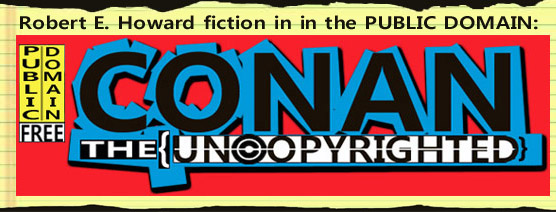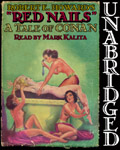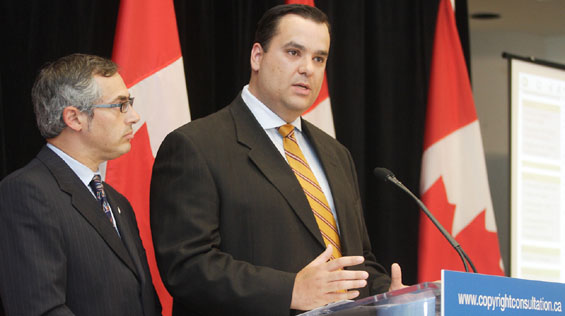
 The Science Fiction Oral History Association, has a new blog (that’s also soon to be a podcast). SFOHA is currently presided over by el presidente Rick Jackson. Rick is a former reviews editor for SFFaudio. The site is just getting started – but it’s a terrific start with several cool convention panels Rick recorded at Penguicon 2009 (a combination Science Fiction and open source software convention) and CONfusion 2009.
The Science Fiction Oral History Association, has a new blog (that’s also soon to be a podcast). SFOHA is currently presided over by el presidente Rick Jackson. Rick is a former reviews editor for SFFaudio. The site is just getting started – but it’s a terrific start with several cool convention panels Rick recorded at Penguicon 2009 (a combination Science Fiction and open source software convention) and CONfusion 2009.
Penguicon 2009:
Copywhat Copyrights! Open Source Licensing in Literature |MP3|
Panel: Rick Jackson,
Creating a Wikinomic Online Community |MP3| Panel: Rick Jackson, Sarah Elkins
Legal Issues and Podcasting |MP3|
Panel: Rick Jackson, Steve Eley
Selling Your Soul – Marketing Your Work on a Limited Budget |MP3|
Panel: Rick Jackson, Jim C. Hines
Cyptic CONfusion 2009:
What Turns Great Ideas Into Short Stories Or Novels?
Panelists: Kelley Armstrong, Violette Malan [M], Paul Melko, Catherine Shaffer and Sandee Rodriguez
1 |MP3| – Approx. 46 Minutes [UNABRIDGED]
Recorded: Saturday January 24, 2009 10am
We all know where ideas come from, don’t we? But what are we supposed to do with them after that? How do we translate those ideas into successful stories and novels? Come and find out!
Did Captain Kirk Own A Wallet?
Panelists: Cory Doctorow, Tobias Buckell [M], Philip Edward Kaldon, Paul Melko and Matthew Stewart-Fulton
1 |MP3| – Approx. 52 Minutes [CONVENTION PANEL]
Recorded: Recorded: Saturday January 24, 2009 11am
Economics and SF how has science fiction has portrayed economics of the future over the years how have things changed, what are some of the enduring themes?
Setting: Haven’t I been here before?
Panelists: Violette Malan [M], Karl Schroeder, Catherine Shaffer, Doselle Young and Jim Frenkel
1 |MP3| – Approx. 46 Minutes [CONVENTION PANEL]
Recorded: Recorded: Saturday January 24, 2009 12pm
How important is setting to a reader’s understanding and enjoyment of the story? Is setting the real difference between S and SF? Are we overusing the settings we have, and are there any new ones?
Meet the New Boss: Young Adult SF
Panelists: Cory Doctorow, Kelley Armstrong, Anne Harris [M], Jim Frenkel, Doselle Young, Steven Harper Piziks
1 |MP3| – Approx. 56 Minutes [CONVENTION PANEL]
Recorded: Saturday January 24, 2009 1pm
How it is the same and different from adult SF and how it has evolved over the years and where it is going. Will it overtake Paranormal Romance and become the next big thing?
Big Brother Is Watching You!
Panelists: Cory Doctorow, David Rozian, Steve Buchheit, Karl Schroeder [M], Catherine Shaffer
1 |MP3| – Approx. 58 Minutes [CONVENTION PANEL]
Recorded: Saturday January 24, 2009 3pm
Personal privacy in the electronic age we now have or will have chips on everything we own including pets, where is this all going? Is it a good thing or a bad thing?
Podcasting — the future of it
Panelists: Cat Rambo, Matthew Stewart-Fulton, Alexander Bouchard, and Rick Jackson
1 |MP3| – Approx. 45 Minutes [CONVENTION PANEL]
Recorded: Sunday January 25, 2009 12pm
Posted by Jesse Willis



 Queen Of The Black Coast
Queen Of The Black Coast

